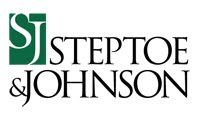As social networking has become entrenched as a tool for doing business and not just a pastime of our social lives, employers, government agencies, and even academia have taken big steps in 2014 to define how social media can and cannot, or should and should not, be used. Below is a summary of some of the big developments in social media in the workplace this year.
The EEOC Turns Its Attention to Social Media
The Equal Employment Opportunity Commission has turned its attention toward social networking, meeting in March to gather information about social media use in the workplace. To no surprise, the EEOC recognized that although using social media sites such as LinkedIn could be a “valuable tool” for identifying employment candidates, relying on personal information found on social networks, such as age, race, gender, or ethnicity, to make employment decisions is prohibited.
More controversially, the EEOC expressed concern that employers’ efforts to access so-called “private” social media communications in the discovery phase of discrimination lawsuits might have a “chilling effect” on employees filing discrimination cases. However, it is unclear how the EEOC might prevent employers from getting this information if it is relevant to a plaintiff’s claims. It remains to be seen what steps the EEOC might take to address this “chilling effect.”
The NLRB Continues to Refine Its Position on Social Media Policies
The National Labor Relations Board has spent the past few years attacking social media policies as overbroad, but perhaps a shift in that policy is at hand. This summer, an NLRB administrative law judge upheld a social media policy that discouraged employees from posting information on social networks about the company or their jobs that might create morale problems. The ALJ held that the policy did not prohibit job-related posts, but merely called on employees to be civil in their social media posts to avoid morale problems. The ALJ’s finding is at odds with recent NLRB decisions, which have gone much further to limit any policies that might affect employees’ rights under the National Labor Relations Act. While it is unclear whether this holding is an outlier or a shift in the NLRB’s approach, it brings with it some hope that the NLRB may be moving toward a more pro-employer stance.
States Continue to Limit Employers’ Access to Employees’ Social Media Accounts
State governments also are getting involved with social media regulation. In April, Wisconsin became the newest state to pass legislation aimed at protecting employees’ social media accounts, passing the Social Media Protection Act. The Act bars employers, schools, and landlords from requiring their employees, students, and tenants to produce their social media passwords. Significantly, the Act does not ban them from viewing social media posts that are publicly accessible.
Wisconsin was not alone in enacting legislation to protect social media passwords this year, as Louisiana, Maine, New Hampshire, Oklahoma, Rhode Island and Tennessee enacted similar laws during 2014 and 12 other states did so in previous years. While not every state has passed such legislation, it is clear that state governments increasingly will not tolerate employers asking employees or applicants for access to their private social networking accounts. Employers should be mindful of their state laws before seeking social media information that might be protected.
Academia is Drawing Its Own Conclusions Regarding Social Media in the Workplace
Federal and state governments are not the only institutions weighing the implications of social media in the workplace. University researchers also are studying employers’ stances on social media – a North Carolina State University study concluded that applicants tend to have a lower opinion of employers that looked at their social media profiles before making a hiring decision, and a Carnegie Mellon University study concluded that employers risked claims of discrimination by reviewing applicants’ social media profiles, based on employers being more likely to screen out candidates based on their personal information such as ethnicity.
While these studies weigh against employers searching applicants’ social media before making hiring decisions, there is certainly logic to the contrary, as employers are entitled to view publicly-accessible information about their applicants, and thorough employers will want to learn as much as they can to do their due diligence in making important hiring decisions.
Laws, best practices, and public opinion regarding social media in the workplace will continue to evolve in 2015. Employers would be wise to look at the most recent developments before making any major decisions affecting their social media policies and practices.





